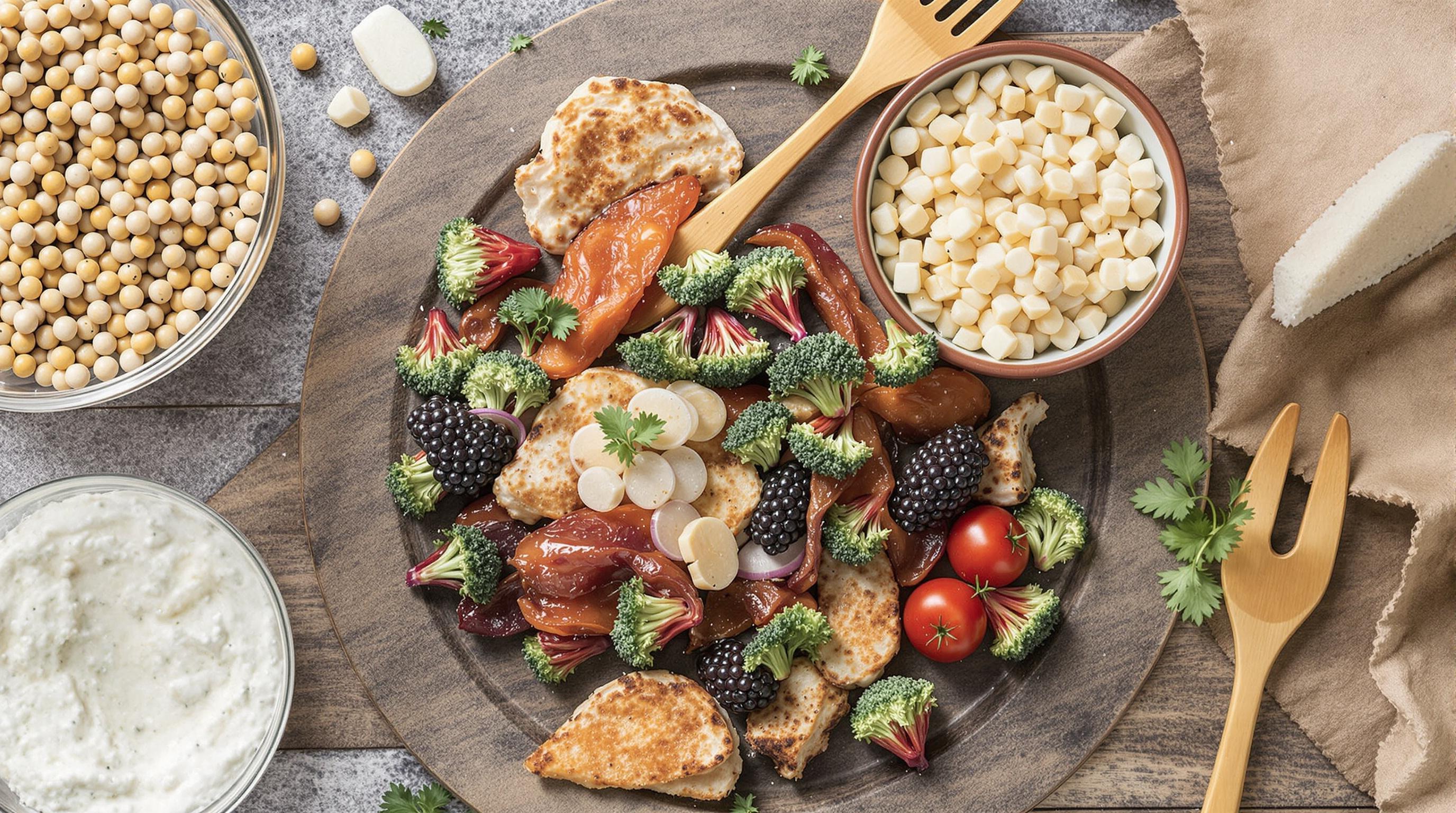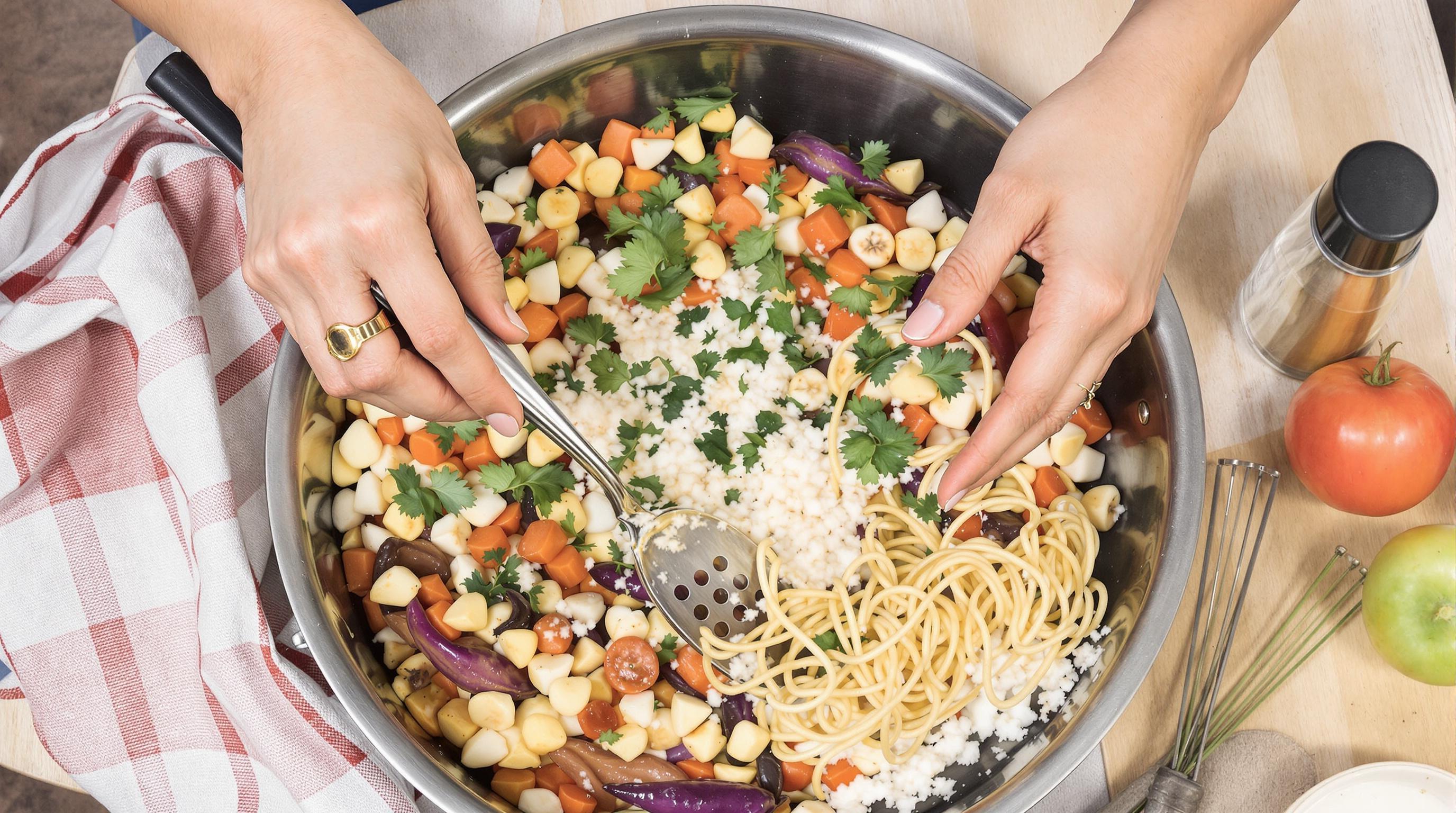Related Articles
- Invisible Threads: How Cultural Heritage Fuels Economic Growth in Off-the-Radar Communities
- How Unconventional Hobbies Can Boost Your Income: Exploring Unlikely Paths to Financial Enlightenment
- Uncommon Currents: How Waterways and Navigation Shaped Unexpected Economic Trajectories in Historical Contexts
- Whispers of Change: The Unlikely Role of Folklore in Crafting Today’s Privacy Policies and Data Protection Laws
- Surreal Shifts: The Unforeseen Role of Psychedelic Wellness in Global Consumer Preferences
- Unveiling the Financial Folly: How Conspiracy Theories Influence Market Behavior and Investor Sentiment
Why Your Favorite Food Can Teach You Valuable Lessons About Budgeting and Resource Management
Why Your Favorite Food Can Teach You Valuable Lessons About Budgeting and Resource Management
Your favorite food isn’t just a delicious treat—it can also hold valuable insights into budgeting and resource management. By examining how we engage with food, we can uncover essential lessons that apply to our finances, time, and other resources.
The Culinary Connection to Budgeting
Consider the simple act of purchasing ingredients for your favorite dish. Every chef, amateur or seasoned, faces the challenge of maximizing taste while staying within budget. For instance, according to the U.S. Bureau of Labor Statistics, the average American family spends approximately 10% of their budget on food. Understanding how to prioritize and allocate this essential expense is a critical part of effective budgeting.
Building a Budget: A Recipe for Success
Just like a recipe requires specific ingredients, your budget needs components. Start with your main expenses: rent, utilities, and food. If you treat your budget like a meal prep session, you’ll lay everything out upfront and understand where to allocate your resources. Begin by identifying your ‘must-haves’—the essential expenses that you cannot compromise on—just as you wouldn't skimp on quality ingredients for a beloved dish.
Anecdote: The Pizza Party Gone Wrong
Imagine this scenario: you decide to throw a pizza party for your friends, but instead of budgeting ahead, you dive in unprepared. You buy an assortment of toppings without checking prices, only to realize at the checkout that your spontaneous decision has left you out of pocket.
As laughter fills the air, and your friends munch on the ultra-expensive gourmet pizzas, you might feel a pang of regret. This experience drives home the importance of planning: budgeting can enhance both the quality of your meals and the joy of sharing them.
Cooking Up a Meal Plan
Creating a meal plan can be likened to crafting a financial plan. Just like you wouldn’t wing a complicated recipe, you shouldn’t plan your finances haphazardly. A study conducted by the USDA reveals that meal planning can save you as much as $1,200 a year! This statistic is staggering and highlights not just the economic benefits, but also the emotional satisfaction of avoiding waste.
The Cost of Impulse Purchases
What’s more tempting than a tasty dessert while grocery shopping? Just like that impulse buy of triple chocolate cake, making unplanned purchases in your budget can lead to financial overindulgence. The Psychology of Food and Eating notes that impulsive eating often stems from emotional triggers, a habit easily mirrored in impulse buying. Recognizing these triggers—be it stress, excitement, or boredom—can lead to more mindful budgeting.
The Art of Portion Control
Portion control isn’t just crucial for maintaining a healthy diet; it also reflects an essential principle of budgeting and resource management. When you know your limits, whether it’s on your plate or in your wallet, you minimize waste. The same applies to budgeting: learning to allocate your resources wisely ensures you don’t overspend, regardless of the circumstances.
Learning from Food Waste
According to the Food Waste Reduction Alliance, nearly 63 million tons of food are wasted in the U.S. each year. Just think—if you had invested that wasted food into a savings account, you'd have substantial cash! To transform this statistic into a personal lesson, engage in mindful consumption: buy only what you need and get creative with leftovers.
Sharing and Community Building
Sharing meals is like sharing your financial journey. When you and your friends plan a potluck, everyone brings something to the table (literally!). This collaboration drives home the value of resource sharing: pooling your ingredients (like skills and knowledge) can lead to a more significant collective enjoyment. Similar to a well-balanced budget, sharing food fosters relationships while reducing strain on individual resources.
Case Study: The Family Recipe Revival
Let’s take a small town in Italy known for its traditional recipes. Every Sunday, family members gather to make homemade pasta using simple, inexpensive ingredients. By recounting stories with each step, they are not just preserving a culinary tradition but also imparting lessons on the value of working together and spending wisely. The lesson here? Just as those families have thrived through collaboration, so too can you foster connections that strengthen both your finances and your friendships.
The Role of Seasonal Eating
Eating with the seasons is a practice that has withstood the test of time. When you shop for seasonal produce, it’s usually more affordable and tastier. The 2019 USDA report shows that seasonal fruits and vegetables are 25-50% cheaper than off-season produce. This economic advantage serves as a reminder: adopting strategies that align with the flow of life can benefit not just your health but also your bank account.
Revisiting Your Grocery List
Your grocery list plays a crucial role in maintaining a budget. Similar to a shopping list for a large event, writing down essential items prevents unplanned purchases that can lead to an empty wallet. Research from Purdue University suggests that shoppers who prepare lists remove 96% of impulse buys—a figure that is hard to ignore. Keep your favorite foods front and center, but be sure to only stock up on what you genuinely need.
Embracing Creativity in Resource Management
Just as a skilled chef improvises with available ingredients, managing your resources effectively requires creativity. When you find yourself with leftovers, think outside the box: can a little chicken, rice, and some vegetables become a stir-fry? Applying creative thinking to budgeting can lead to unexpected savings and resource allocation. In turn, innovative solutions in your finances encourage a proactive approach to challenges.
Humor and the Discipline of Budgeting
Let’s face it: budgeting can sometimes feel as exciting as a bowl of plain oatmeal. But it doesn’t have to be palate-deadening! Infusing humor into budgeting discussions—like comparing your savings strategy to trying out new recipes—makes the task enjoyable. Next time you review your budget, concoct a funny analogy of your finances versus charming your way through an unwanted dinner party—a feat everyone can relate to.
The Final Bites: A Personal Narrative
Let me tell you about my favorite dish, chicken curry. There's not a better feeling than having friends gather around the table, sharing flavors, stories, and laughs. However, the magic doesn’t just happen with splurging on exotic spices. When I learned to manage my ingredients wisely, I was not only able to throw successful dinner parties but also save money for travels. In hindsight, my culinary adventures taught me invaluable lessons: budgeting isn’t merely about denying yourself; it’s about crafting a fulfilling experience within your means.
Dish It Out: Take Action
What can you take from this delicious journey? Start by creating a meal plan, prioritizing seasonal produce, and sticking to your grocery list. Apply the lessons you learn from cooking to other aspects of your life. Remember, whether it’s food or finances, the key lies in preparing ahead, resourcefulness, and a willingness to learn from every bite.




